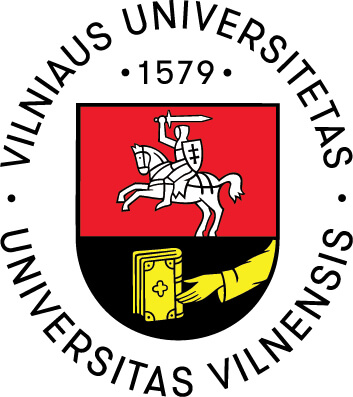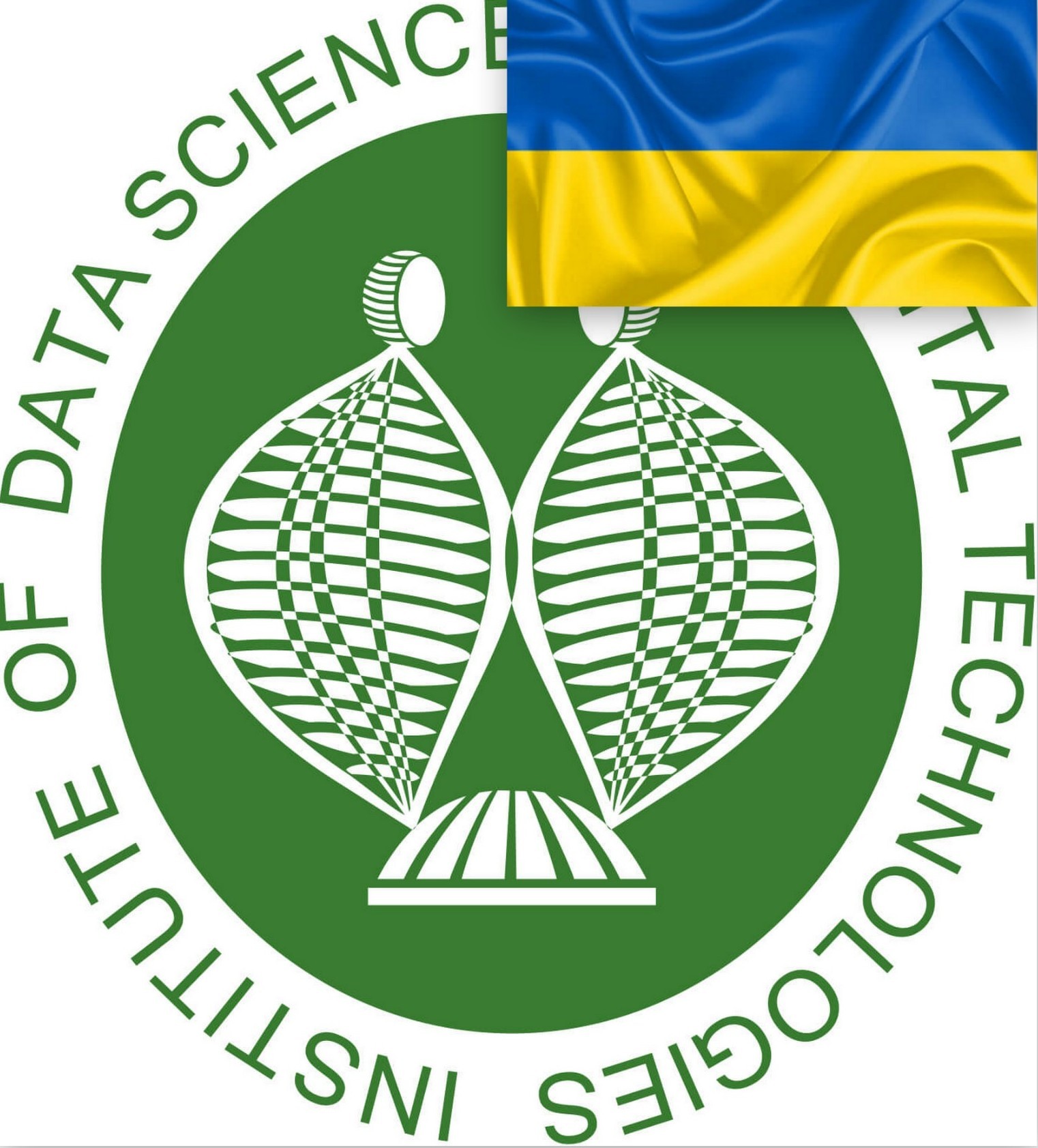Structure
- Structure of VU DMSTI
- Staff
- Scientific subdivisions
- Artificial Intelligence Laboratory
- Blockchain and Quantum Technologies Group
- Cognitive Computing Group
- Cyber-Social Systems Engineering Group
- Education Systems Group
- Global Optimization Group
- Image and Signal Analysis Group
- Intelligent Technologies Research Group
- Interdisciplinary Statistical Research Group
Doktorantura
The year 2025
Mathematics - N 001
| Disertation topics | Possible scientific supervisors |
| Analytic number theory | Prof. Igoris Belovas |
| Artificial intelligence and mathematical finance | Prof. Igoris Belovas Prof. Virginijus Marcinkevičius |
| Geometric group theory | Dr. Daniele Otera |
| Mathematical statistics | Dr. Andrius Čiginas |
| Optimization methods |
Prof. Julius Žilinskas |
| Experimental Mathematics |
Prof. Igoris Belovas |
| Probability theory |
Doc. Marijus Vaičiulis |
Informatics - N 009
| Dissertation topics | Possible scientific supervisors |
| Computational modelling of physical, chemical, biological and social systems |
Prof. Igoris Belovas |
| Big data analytics and visualisation |
Prof. Igoris Belovas |
| Optimization algorithms and applications | Doc. Algirdas Lančinskas Prof. Remigijus Paulavičius Doc. Dovilė Stumbrienė Prof. Julius Žilinskas |
| Developing artificial intelligence-based methods | Dr. Jolita Bernatavičienė Prof. Gintautas Dzemyda Dr. Ernestas Filatovas Doc. Gražina Korvel Prof. Olga Kurasova Prof. Virginijus Marcinkevičius Doc. Viktor Medvedev Dr. Gerda Ana Melnik-Leroy Prof. Povilas Treigys Doc. Tadas Žvirblis |
| Information systems and business ecosystems modelling |
Doc. Jolanta Miliauskaitė |
| Developing and researching image, sound, natural language processing techniques and solutions based on large and visual language models |
Dr. Jolita Bernatavičienė Doc. Gražina Korvel Prof. Virginijus Marcinkevičius Doc. Gintautas Tamulevičius Prof. Povilas Treigys |
| Development of blockchain and quantum computing techniques | Doc. Ernestas Filatovas Prof. Remigijus Paulavičius |
Informatics engineering - T 007
| Dissertation topics | Possible scientific supervisors |
| Intelligent technologies for the development fo cyber-physical-social systems | Doc. Jolanta Miliauskaitė |
| Computer-assisted teaching and learning technologies | Prof. Valentina Dagienė Dr. Vladimiras Dolgopolovas Doc. Tatjana Jevsikova Dr. Anita Juškevičienė Doc. Dovilė Stumbrienė Dr. Gabrielė Stupurienė |
| Parallel and distributed computing | Doc. Algirdas Lančinskas Prof. Julius Žilinskas |
| Artificial intelligence technologies and applications | Prof. Gintautas Dzemyda Prof. Olga Kurasova Prof. Virginijus Marcinkevičius Dr. Viktor Medvedev Doc. Gintautas Tamulevičius Doc. Tadas Žvirblis |
| Image, sound, streaming data and natural language processing technologies |
Dr. Jolita Bernatavičienė |
| Development and applications of quantum and distributed technologies | Dr. Ernestas Filatovas Prof. Remigijus Paulavičius |
| Artificial intelligence-based solutions to improve cybersecuruty | Prof. Igoris Belovas Prof. Olga Kurasova Doc. Viktor Medvedev |
Doctoral Committee for Computer Science (N 009) in the Life Sciences
The Chair
Prof. Dr. Olga Kurasova – Faculty of Mathematics and Computer Science, Vilnius University
Members:
Prof. Dr. Romas Baronas – Faculty of Mathematics and Computer Science, Vilnius University
Prof. Habil. Dr. Mindaugas Bloznelis – Faculty of Mathematics and Computer Science, Vilnius University
Prof. Habil. Dr. Gintautas Dzemyda – Faculty of Mathematics and Computer Science, Vilnius University
Prof. Dr. Linas Laibinis – Faculty of Mathematics and Computer Science, Vilnius University
Assoc. Prof. Dr. Algirdas Lančinskas – Faculty of Mathematics and Computer Science, Vilnius University
Dr. Remigijus Paulavičius – Faculty of Mathematics and Computer Science, Vilnius University
Assoc. Prof. Dr. Povilas Treigys – Faculty of Mathematics and Computer Science, Vilnius University
Prof. Dr. Julius Žilinskas – Faculty of Mathematics and Computer Science, Vilnius University
The Committee was approved on 07-05-2018 by Order No D-502 of the Rector of Vilnius University.
The changes of the Committee were approved on 22-03-2021 by Order No. D-156 of the Vice-Rector of Science of Vilnius University.
Doctoral Committee for Computer Engineering (T 007) in the Technological Sciences
The Chair
Prof. Dr. Julius Žilinskas – Faculty of Mathematics and Computer Science, Vilnius University
Members:
Prof. Dr. Valentina Dagienė – Faculty of Mathematics and Computer Science, Vilnius University
Prof. Habil. Dr. Gintautas Dzemyda – Faculty of Mathematics and Computer Science, Vilnius University
Prof. Dr. Saulius Gudas – Faculty of Mathematics and Computer Science, Vilnius University
Prof. Dr. Olga Kurasova – Faculty of Mathematics and Computer Science, Vilnius University
Prof. Dr. Linas Laibinis – Faculty of Mathematics and Computer Science, Vilnius University
Prof. Dr. Audrius Lopata – Faculty of Kaunas, Vilnius University
Dr. Virginijus Marcinkevičius – Faculty of Mathematics and Computer Science, Vilnius University
Prof. Dr. Aistis Raudys – Faculty of Mathematics and Computer Science, Vilnius University
The Committee was approved on 08-05-2018 by Order No D-521 of the Rector of Vilnius University.
The changes of the Committee were approved on 22-03-2021 by Order No. D-155 of the Vice-Rector of Science of Vilnius University.
Doctoral Committee for Mathematics (N 001) in the Life Sciences
The Chair
Prof. Habil. Dr. Artūras Dubickas – Faculty of Mathematics and Computer Science, Vilnius University
Members:
Prof. Habil. Dr. Vydas Čekanavičius – Faculty of Mathematics and Computer Science, Vilnius University
Prof. Dr. Paulisu Drungilas – Faculty of Mathematics and Computer Science, Vilnius University
Prof. Dr. Ramūnas Garunkštis – Faculty of Mathematics and Computer Science, Vilnius University
Prof. Habil. Dr. Kęstutis Kubilius – Faculty of Mathematics and Computer Science, Vilnius University
Prof. Habil. Dr. Antanas Laurinčikas – Faculty of Mathematics and Computer Science, Vilnius University
Prof. Habil. Dr. Remigijus Leipus – Faculty of Mathematics and Computer Science, Vilnius University
Dr. Daniele Ettore Otera – Faculty of Mathematics and Computer Science, Vilnius University
Prof. Habil. Dr. Konstantinas Pileckas – Faculty of Mathematics and Computer Science, Vilnius University
Prof. Habil. Dr. Alfredas Račkauskas – Faculty of Mathematics and Computer Science, Vilnius University
Prof. Dr. Artūras Štikonas – Faculty of Mathematics and Computer Science, Vilnius University
Prof. Dr. Jonas Šiaulys – Faculty of Mathematics and Computer Science, Vilnius University
The Committee was approved on 07-05-2018 by Order No D-496 of the Rector of Vilnius University.
The changes of the Committee were approved on 06-11-2019 by Order No. D-1021 of the Vice-Rector of Science of Vilnius University.
VU DOCTORAL STUDY PROGRAM INFORMATICS ENGINEERING (T 007)
Compulsory Subjects
| Scientific areas | Course unit title | Number of credits |
Semester | Lecturers |
| N 009, T 007 | Research Methods in Informatics and Informatics Engineering | 8 | In the spring of the first study year | A. Lupeikienė V. Marcinkevičius I. Belovas G. Dzemyda |
| N 009, T 007 | Fundamental methods of informatics and informatics engineering science | 8 | In the autumn of the second study year | J. Žilinskas R. Baronas A. Jakaitienė O. Kurasova L. Laibinis V. Marcinkevičius G. Tamulevičius |
Alternative Optional Subjects
|
Scientific areas |
Course unit title |
Number of |
Semester |
Lecturers |
|
T 007 |
7 |
Spring |
R. Paulavičius |
|
|
T 007 |
7 |
Autumn |
V. Medvedev |
|
|
T 007 |
7 |
Autumn |
G. Tamulevičius |
|
|
T 007 |
7 |
Spring |
J. Žilinskas |
|
|
T 007 |
7 |
Autumn |
V. Marcinkevičius |
|
|
T 007 |
7 |
Spring |
S. Gudas |
|
|
T 007 |
7 |
Spring |
V. Marcinkevičius |
|
|
T 007 |
7 |
Autumn |
S. Gudas |
|
|
T 007 |
7 |
Autumn |
S. Gudas |
|
|
T 007 |
7 |
Spring |
G. Tamulevičius |
|
|
T 007 |
7 |
Autumn |
G. Dzemyda |
|
|
T 007 |
7 |
Autumn |
V. Dagienė |
|
|
T 007 |
7 |
Spring |
P. Treigys |
|
|
T 007 |
7 |
Spring |
A. Lopata |
In all: 14
VU Doctoral Study Program Informatics (N 009)
| Scientific areas | Course unit title | Number of credits |
Semester | Lecturers |
| N 009, T 007 | Research Methods in Informatics and Informatics Engineering | 8 | In the spring of the first study year | A. Lupeikienė V. Marcinkevičius I. Belovas G. Dzemyda |
| N 009, T 007 | Fundamental methods of informatics and informatics engineering science | 8 | In the autumn of the second study year | J. Žilinskas R. Baronas A. Jakaitienė O. Kurasova L. Laibinis V. Marcinkevičius G. Tamulevičius |
Alternative Optional Subjects
|
Scientific areas |
Course unit title |
Number of |
Semester |
Lecturers |
|
N 009 |
7 |
Spring |
L. Laibinis |
|
|
N 009 |
7 |
Spring |
G. Dzemyda |
|
|
N 009 |
7 |
Autumn |
S. Gražulis |
|
|
N 009 |
7 |
Spring |
P. Treigys |
|
|
N 009 |
7 |
Autumn |
S. Zubė |
|
|
N 009 |
7 |
Spring |
K. Karčiauskas |
|
|
N 009
|
7 |
Spring |
A. Jakaitienė |
|
|
N 009 |
7 |
Autumn |
J. Žilinskas |
|
|
N 009 |
7 |
Spring |
R. Baronas |
|
|
N 009 |
Formal semantics and specification methods for software-based systems |
7 |
Autumn |
L. Laibinis |
|
N 009 |
7 |
Autumn |
A. Raudys |
|
|
N 009 |
7 |
Spring |
T. Meškauskas |
|
|
N 009 |
7 |
Autumn |
I. Belovas |
|
|
N 009 |
7 |
Spring |
R. Baronas |
|
|
N 009 |
7 |
Autumn |
M. Bloznelis |
In all: 15
VU Matematikos (N 001) doktorantūros studijų programa
The doctoral program in Mathematics is designed according to the planned research topics of doctoral students, as well as qualification training courses in this field of science. The purpose of the doctoral program is to train scientists, who would be capable of independently carrying out research and experimental development and solving scientific problems of Mathematics.
The study program consists of two blocks for subjects: compulsory block and elective block. The compulsory block consists of the subject for all the doctoral students and it reflects the main research topics for doctoral students, providing them with access to the general qualifications required for research. An elective block offers the subjects from which the rest of the program may be chosen and it is based on the research topics of Mathematics. With the approval of the PhD Committee, students can choose the subject in other fields of science.
 Now you are in the 1st Lithuanian (.LT) domain.
Now you are in the 1st Lithuanian (.LT) domain. 




